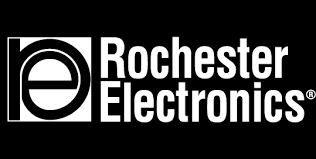Commercial Avionics Powered by Rochester Electronics
Enabling proven avionic systems
Enabling legacy long-lifecycle aerospace systems through semiconductor lifecycle management is crucial for several reasons. These systems have a proven reliability and performance track record, having undergone extensive testing and validation. Replacing them with new, untested systems can introduce unforeseen risks, non-compliance with regulatory standards, and potential failures. Furthermore, the cost of replacing proven legacy systems can be prohibitively expensive, encompassing the new equipment and the integration, testing, re-qualification, and training required for seamless operation.
Component obsolescence is a significant challenge for system designers. As technology evolves, many integral components used within systems become outdated or are discontinued by their manufacturers. This threatens the continuity of legacy systems and creates significant hurdles for designers, who must navigate the complex task of maintaining systems that are functional, affordable, and compliant with regulatory standards. Unfortunately, managing obsolescence is complex, involving sourcing obsolete components and addressing the technical and economic impacts of integrating modern technologies with legacy systems.
Rochester Electronics provides comprehensive services enabling legacy avionic systems to continue operating, including authorized distribution, wafer storage, replication, assembly, and advanced testing.
Rochester has documented our role in preserving legacy within avionic systems through our white papers: Future-proofing Aerospace and Avoiding DO-254 Major Changes. While these papers emphasize our services and capabilities, they do not indicate where these systems are utilized in commercial avionics today. To understand the range of Rochester’s solutions fully, it is important to provide an overview of the commercial systems in which Rochester is either supplying a licensed manufactured solution, assembly and test using die from an original component manufacturer (OCM), or we have ported/replicated a silicon device in addition to manufacturing the product.
A partial list of Rochester’s product replications is available through our product showcase. As shown in the animation below, many of these product replications are used in systems today. This system’s view is what we know is used for products supplied by Rochester and is likely an understatement of how many systems we continue to enable in the commercial avionics industry. Rochester supplies fully ported and replicated DAL-A products to the commercial avionics industry, including manufacturing processes from new silicon through assembly, testing, Reliability Testing, and both package and silicon qualification activities.
The Commercial Avionics Market
The commercial avionics market continues to grow, as shown in the figure below, along with some major suppliers.

Figure: Commercial Aircraft Avionics Market, Sourced from Mordor Intelligence, 2024, “Commercial Aircraft Avionics Systems Market-Size and Revenue.”
Principal aircraft suppliers include Airbus, Boeing, Embraer, Bombardier, and Comac. As shown in the graphic above, these aircraft suppliers buy subsystems from key OEMs. Rochester Electronics continues to supply semiconductor products to these critical and proven subsystems long after the original OCMs have shipped their last actively manufactured devices. In some cases, suppliers of airframes (an aircraft's mechanical structure) create and manage their own subsystems. Rochester continues to work directly with the two largest commercial airframe suppliers in the world, along with the subsystem OEMs.
A System of Systems – Today’s commercial aircraft
The animation of a generic commercial airliner below highlights the end systems where Rochester ships ported, replicated, and/or manufactured products. While not every system is represented in this diagram, it is evident that Rochester is addressing critical needs in an industry that is hesitant to move away from proven technologies with established flight-hour proof of reliability. From flight computers and engine control to data switching and refueling panels, Rochester Electronics offers solutions that allow customers to continue using their existing board designs, maintain current manufacturing processes, and avoid triggering a DO-178 event in system software.
By partnering with Rochester Electronics, aerospace companies can ensure their operations' continuity, reliability, and safety, even as they navigate the complexities of component obsolescence and technological evolution.

Subscribe to Our Newsletter
Get the latest news, articles, and resources in your inbox weekly.
Manufacturers




